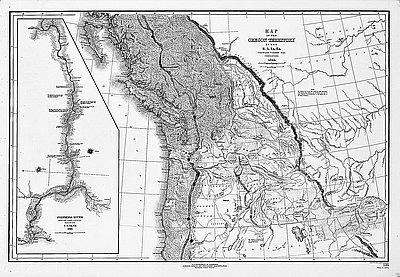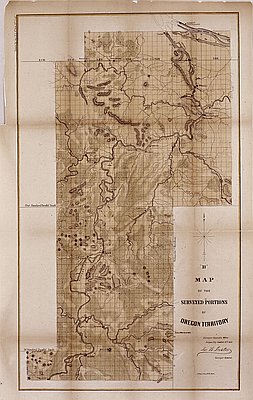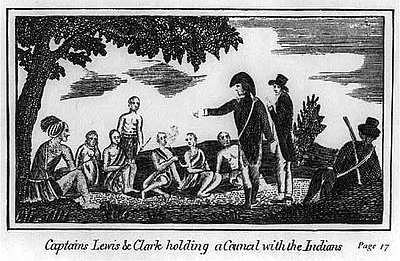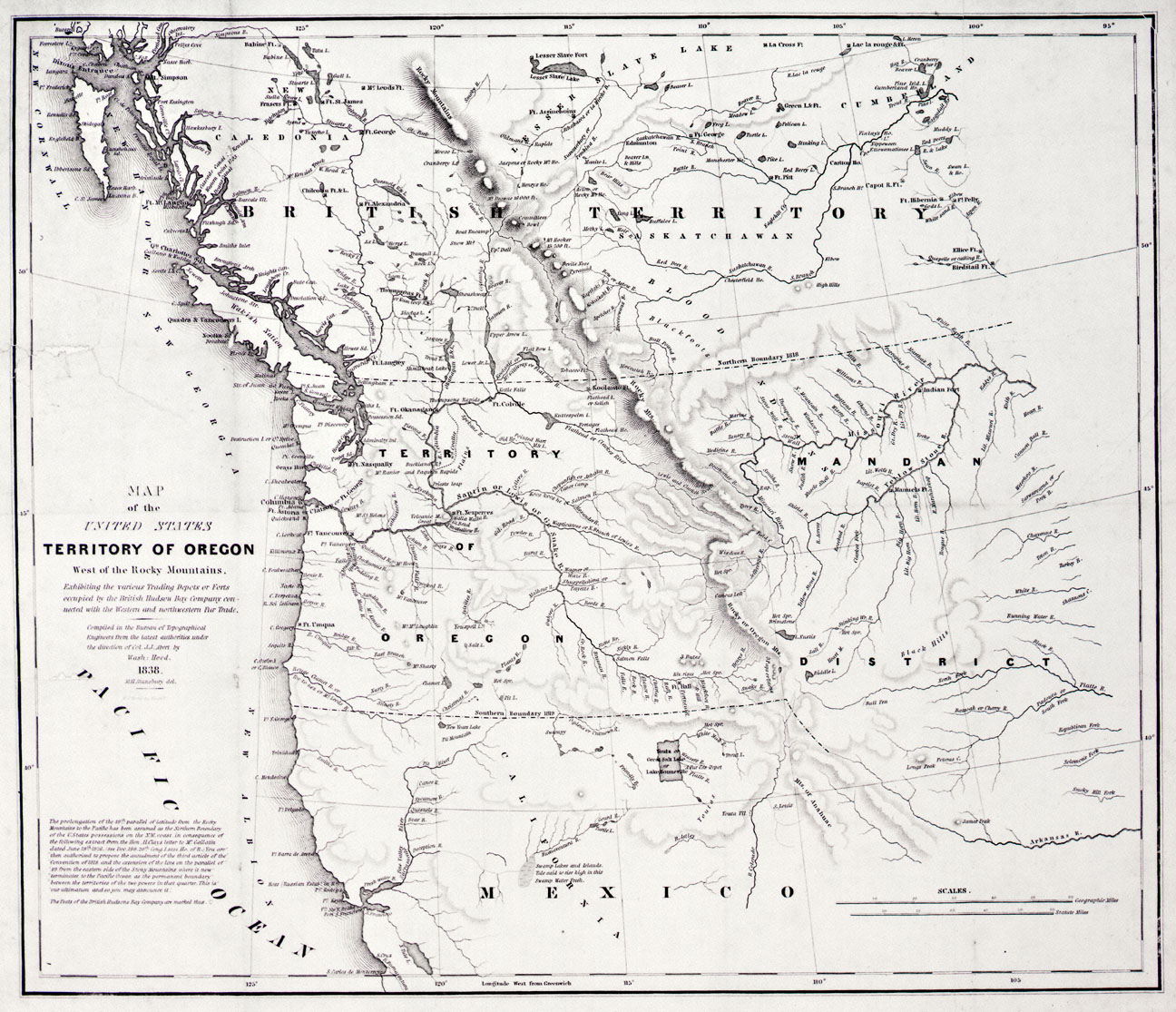- Catalog No. —
- OrHi 99317
- Date —
- 1838
- Era —
- 1792-1845 (Early Exploration, Fur Trade, Missionaries, and Settlement)
- Themes —
- Environment and Natural Resources, Exploration and Explorers, Geography and Places, Government, Law, and Politics, Oregon Trail and Resettlement, Trade, Business, Industry, and the Economy
- Credits —
- U.S. Government�
- Regions —
- Oregon Country
- Author —
- U.S. Bureau of Topographical Engineers
Territory of Oregon West of the Rocky Mountains
Britain and America jointly occupied the Pacific Northwest from 1812 until 1846, during which time companies from each nation attempted to establish footholds in the regional fur trade. While earlier trade was mostly restricted to bartering between coastal Indians and the crews of European and American sailing ships, fur company representatives explored the Pacific Northwest's interior and eventually established posts there.
Companies sent trappers out from the posts to distant locations to hunt beavers, lynx, and bears. Most of the trappers were French-Canadian men, accompanied by native wives, but employees also included Hawaiians and Indians from the eastern U.S. The trappers delivered the furs back to the posts, where they were shipped to Asia and Europe. The same ships delivered various supplies for the posts and goods for bartering with local Natives.
A short-lived American enterprise, the Pacific Fur Company, and two British-owned businesses, the North West Company and the Hudson Bay Company, all established posts in the Pacific Northwest. The Pacific Fur Company operated from 1811 to 1813, when it sold out to the North West Company. In 1821, the North West Company merged with the Hudson's Bay Company. HBC dominated the Pacific Northwest fur trade until the Oregon Treaty of 1846, which established the 49th parallel as the boundary between the United States and Canada.
Dean, Jonathan R. The Hudson Bay Company and Its Use of Force, 1828-1829. Oregon Historical Quarterly, 1997: 262-95.
Hussey, John A. The Women of Fort Vancouver. Oregon Historical Quarterly
Written by Kathy Tucker, Oregon Historical Society, 2002.
Related Historical Records
-
Map of the Oregon Territory, 1841
In 1841, Lt. Charles Wilkes, commander of the U.S. Exploring Expedition, sailed to the Pacific Northwest and began to explore the geographic region known as Oregon Country, which …

-
Surveyed Portions of the Oregon Territory, 1852
The map above shows the surveyed portion of the Oregon Territory as of October 21, 1852. It was prepared by John B. Preston, first surveyor general of Oregon. …

-
Into the New Territory
The expeditionary flotilla got underway in May 1804, leaving from the St. Louis area and heading up the Missouri in a keelboat and pirogues. They loaded their vessels …

